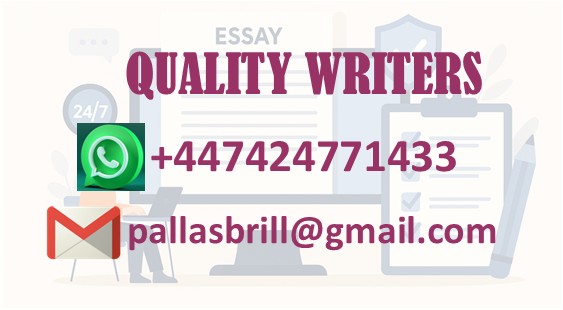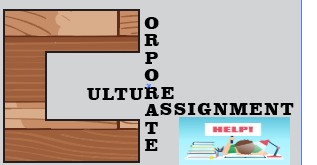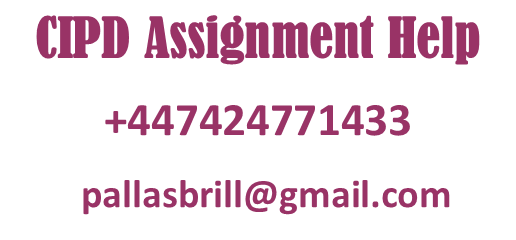
Quality Writers for Exemplary Assignments and Essays
In today's fast-paced digital landscape, finding quality writers for your assignments and content needs can be a daunting task. With countless freelancers and agencies vying for your attention, it's essential to distinguish the exceptional from the average. Whether you're seeking engaging blog posts, well-researched articles, or compelling marketing copy, the right writer can elevate your project and help your brand stand out. This guide aims to unlock the secrets of hiring top-tier talent by providing practical tips and strategic insights. From identifying key qualities and vetting portfolios to conducting effective interviews, you'll learn how to assemble a team of writers who not only meet your expectations but exceed them. Say goodbye to mediocre content and discover how to attract and retain outstanding writing professionals who can bring your vision to life. At Pallas Brill, we understand the importance of a quality writer in ensuring excellence and significantly transforming your learning journey. Engage us today via WhatsApp (+447424771433) or Email: pallasbrill@gmail.com for a high quality writer.
Understanding the Importance of Quality Writing
In the realm of digital communication, the significance of quality writing cannot be overstated. Whether it's for a business website, a personal blog, or academic assignments, the caliber of writing directly impacts how the message is received. High-quality writing can captivate an audience, convey complex ideas with clarity, and establish credibility. Conversely, poor writing can lead to misunderstandings, diminish the perceived value of content, and ultimately harm a brand's reputation. As such, investing in quality writers is not just a luxury but a necessity for anyone serious about effective communication.
Quality writing serves as the backbone of any content strategy. It ensures that the message is not only delivered but also resonates with the intended audience. In an age where attention spans are dwindling, engaging and well-crafted content can make the difference between retaining a reader or losing them to a sea of distractions. A skilled writer knows how to weave words into compelling narratives, making information accessible and engaging. This ability to transform mundane topics into captivating stories is what sets exceptional writers apart from the rest.
Moreover, quality writing has a direct impact on search engine optimization (SEO). Search engines prioritize content that is well-written, relevant, and valuable to users. By hiring quality writers, you ensure that your content is not only appealing to readers but also optimized for search engines. This dual benefit enhances visibility and drives organic traffic to your site. In summary, quality writing is a critical component of effective communication, brand building, and digital marketing, underscoring the importance of identifying and hiring top-tier writing talent. At Pallas Brill, we understand the importance of quality writing as exemplified in the samples. https://pallasbrill.com/samples
Defining Your Writing Needs and Goals
Before embarking on the journey to find quality writers, it's essential to have a clear understanding of your writing needs and goals. This foundational step will guide the entire hiring process, ensuring that you attract writers who are well-suited to your specific requirements. Start by identifying the type of content you need. Are you looking for blog posts, articles, web copy, marketing materials, or academic writing? Each type of content requires a different skill set and level of expertise, so it's crucial to be specific about your needs.
Next, consider the tone and style that best aligns with your brand or project. Do you need a conversational and friendly tone, or is a formal and authoritative voice more appropriate? The desired tone will influence the type of writer you seek and how you evaluate their suitability. Additionally, think about the frequency and volume of content required. Are you looking for a one-time project, ongoing content creation, or a mixture of both? Defining these parameters will help you determine whether you need a freelance writer, a part-time contributor, or a full-time team member.
Lastly, outline your goals for the content. What do you hope to achieve with the writing? Are you aiming to educate your audience, drive traffic to your website, generate leads, or establish thought leadership? Clear goals will not only guide your writer in crafting content that meets your objectives but also provide a benchmark for evaluating their performance. By defining your writing needs and goals upfront, you set the stage for a successful hiring process that aligns with your vision and delivers the desired outcomes.
Key Qualities to Look for in a Writer
Finding the right writer involves more than just evaluating their writing skills. To ensure that you hire someone who can truly elevate your content, you need to look for a combination of qualities that extend beyond technical proficiency. One of the most important attributes is a strong command of language. A quality writer should have a firm grasp of grammar, punctuation, and syntax, as well as an extensive vocabulary that allows them to articulate ideas effectively. This foundational skill is non-negotiable, as it forms the basis of all good writing.
Another key quality to look for is versatility. The best writers are adaptable and capable of writing across different genres and formats. Whether it's a persuasive marketing copy, an informative blog post, or a detailed research article, a versatile writer can tailor their style to suit the specific needs of each project. This flexibility is particularly valuable in a fast-paced digital environment where content requirements can vary widely. Additionally, a versatile writer is more likely to bring fresh perspectives and creative solutions to your content strategy.
Reliability and professionalism are also crucial qualities. A quality writer should be dependable, meeting deadlines consistently and communicating effectively. This reliability ensures that your content schedule runs smoothly and that you're not left scrambling to fill gaps. Professionalism includes a willingness to accept feedback and make revisions, demonstrating a commitment to producing the best possible work. By prioritizing these key qualities—language proficiency, versatility, reliability, and professionalism—you can identify writers who are well-equipped to deliver high-quality content that meets your needs. At Pallas Brill, we understand the importance of these qualities and have focused on building them among out exceptional writers and assignment handlers.
Where to Find Quality Writers
Once you have a clear understanding of your writing needs and the qualities you're looking for, the next step is to find potential candidates. There are several avenues to explore when searching for quality writers, each with its own set of advantages. One of the most common places to start is freelance platforms such as Upwork, Freelancer, and Fiverr. These platforms offer access to a vast pool of writers with varying levels of experience and expertise. You can browse profiles, read reviews, and even post job listings to attract applicants.
Another valuable resource is professional writing associations and networks. Organizations like the American Society of Journalists and Authors (ASJA) or the Editorial Freelancers Association (EFA) provide directories of vetted writers who adhere to professional standards. These associations often have specialized directories where you can find writers with specific skills or industry experience. Additionally, attending industry conferences and networking events can connect you with talented writers who are actively seeking new opportunities.
Social media platforms, particularly LinkedIn, can also be effective for finding quality writers. LinkedIn allows you to search for writers based on their skills, experience, and recommendations. You can also join relevant groups and engage with potential candidates through posts and direct messages. Finally, don't overlook the power of personal referrals. Ask colleagues, friends, or industry contacts if they can recommend any writers they have worked with and trust. By leveraging these various resources, you can cast a wide net and increase your chances of finding the perfect writer for your needs.
How to Evaluate a Writer's Portfolio
A writer's portfolio is one of the most critical tools for evaluating their suitability for your project. It provides a tangible representation of their skills, style, and experience. When reviewing a portfolio, the first thing to consider is the quality of the writing itself. Look for clear, concise, and engaging content. Pay attention to the writer's ability to structure their work logically and cohesively, ensuring that each piece flows smoothly from one idea to the next. High-quality writing should be free of grammatical errors and demonstrate a strong command of language.
In addition to assessing the technical aspects of the writing, consider the relevance of the portfolio to your specific needs. Does the writer have experience in your industry or with the type of content you require? For example, if you're looking for a writer to create technical articles, their portfolio should include examples of similar work. The more aligned their past work is with your project, the more confident you can be in their ability to deliver the content you need.
It's also important to evaluate the diversity of the portfolio. A varied portfolio indicates versatility and the ability to adapt to different writing styles and formats. Look for a range of content types, such as blog posts, articles, case studies, and marketing copy. This variety demonstrates that the writer can handle different challenges and is not limited to a single writing style. By thoroughly evaluating a writer's portfolio, you can gain valuable insights into their capabilities and determine if they are the right fit for your project.
The Role of Writing Samples in the Hiring Process
While a portfolio provides an overview of a writer's past work, writing samples play a crucial role in assessing their current skills and suitability for your specific needs. Requesting writing samples allows you to evaluate how well a writer can perform on a task directly related to your project. This step is particularly important if the portfolio does not fully align with your requirements or if you need to gauge the writer's ability to handle a specific topic or format.
When requesting writing samples, be clear about your expectations. Provide detailed guidelines on the topic, length, tone, and style you require. This clarity ensures that the writer understands the task and can deliver a sample that accurately reflects their capabilities. It's also helpful to set a reasonable deadline, as this can give you an indication of the writer's ability to work within time constraints. Reviewing writing samples allows you to assess not only the quality of the content but also the writer's responsiveness and professionalism.
In addition to evaluating the writing itself, consider the writer's approach to the task. Did they conduct thorough research? Did they follow the guidelines provided? These factors are indicative of their attention to detail and commitment to delivering high-quality work. By incorporating writing samples into the hiring process, you can gain a deeper understanding of a writer's skills and ensure that they are well-equipped to meet your specific needs.
Conducting Effective Interviews with Potential Writers
Conducting interviews with potential writers is a critical step in the hiring process. It provides an opportunity to assess their communication skills, professionalism, and cultural fit. Start by preparing a list of questions that cover both their writing experience and their approach to work. Ask about their previous projects, the types of content they enjoy writing, and any challenges they have faced. This information will give you insight into their expertise and how they handle different writing tasks.
During the interview, pay attention to the writer's ability to articulate their thoughts clearly and confidently. Strong verbal communication skills often translate to strong written communication skills. Additionally, ask about their process for creating content. Do they conduct thorough research? How do they handle revisions and feedback? Understanding their workflow will help you determine if they are organized and detail-oriented.
It's also important to assess the writer's enthusiasm and passion for their craft. A writer who is genuinely passionate about writing is more likely to produce high-quality work and go above and beyond to meet your expectations. Finally, consider the cultural fit. Does the writer's personality and work style align with your team and organizational values? Building a positive and collaborative working relationship is essential for long-term success. By conducting effective interviews, you can gather valuable information and make an informed decision about the best writer for your needs.
Setting Clear Expectations and Guidelines
Setting clear expectations and guidelines is essential for establishing a productive working relationship with your writer. This step ensures that both parties are on the same page and helps prevent misunderstandings and miscommunications. Start by outlining the scope of the project, including the type of content required, the target audience, and the desired tone and style. Providing this information upfront gives the writer a clear understanding of your needs and helps them tailor their work accordingly.
Next, establish deadlines and timelines for each deliverable. Be realistic about the time required for research, writing, and revisions, and communicate these deadlines clearly. This transparency helps the writer manage their workload and ensures that you receive the content on time. Additionally, discuss the process for providing feedback and making revisions. Agree on a system for reviewing drafts and making changes, and set expectations for turnaround times. This collaborative approach fosters a positive working relationship and ensures that the final product meets your standards.
Finally, discuss compensation and payment terms. Be upfront about your budget and payment schedule, and make sure both parties agree on the terms. Clear communication about compensation helps build trust and avoids potential conflicts down the line. By setting clear expectations and guidelines, you create a framework for success and establish a foundation for a productive and mutually beneficial working relationship.
The Benefits of Building Long-Term Relationships with Writers
Building long-term relationships with writers offers numerous benefits that extend beyond the immediate project. One of the most significant advantages is consistency. When you work with the same writer over time, they become familiar with your brand, voice, and content needs. This familiarity allows them to produce content that is consistently aligned with your goals and maintains a cohesive tone and style. Consistency is particularly important for building brand identity and ensuring that your audience receives a unified message.
Another benefit is efficiency. As the writer becomes more acquainted with your expectations and preferences, the content creation process becomes smoother and more efficient. The writer can anticipate your needs, make fewer revisions, and deliver high-quality content more quickly. This efficiency saves time and resources, allowing you to focus on other aspects of your business or project. Additionally, a long-term relationship fosters trust and collaboration. A writer who feels valued and appreciated is more likely to be invested in your success and go the extra mile to deliver exceptional work.
Finally, building long-term relationships with writers can lead to greater creativity and innovation. As the writer gains a deeper understanding of your brand and industry, they can bring fresh ideas and perspectives to the table. This ongoing collaboration can result in more innovative and impactful content that resonates with your audience. By investing in long-term relationships with writers, you create a foundation for sustained success and continuous improvement in your content strategy.
Conclusion: Making the Right Choice for Your Writing Needs
In conclusion, identifying and hiring quality writers is a critical step in achieving excellence in your content strategy. By understanding the importance of quality writing and defining your specific needs and goals, you set the stage for a successful hiring process. Prioritizing key qualities such as language proficiency, versatility, reliability, and professionalism ensures that you find writers who can deliver high-quality content that meets your expectations. Exploring various avenues for finding writers, from freelance platforms to professional associations, broadens your search and increases your chances of finding the perfect match.
Evaluating a writer's portfolio and requesting writing samples provide valuable insights into their capabilities and suitability for your project. Conducting effective interviews allows you to assess their communication skills, professionalism, and cultural fit. Setting clear expectations and guidelines establishes a framework for success and fosters a positive working relationship. Finally, building long-term relationships with writers offers numerous benefits, including consistency, efficiency, trust, and creativity.
By following these strategic steps, you can attract and retain exceptional writing professionals who can bring your vision to life. Say goodbye to mediocre content and embrace excellence in your writing projects. With the right writers on your team, you can elevate your brand, engage your audience, and achieve your content goals. Unlocking excellence in writing is not just a goal; it's a journey that starts with making the right choice for your writing needs.



